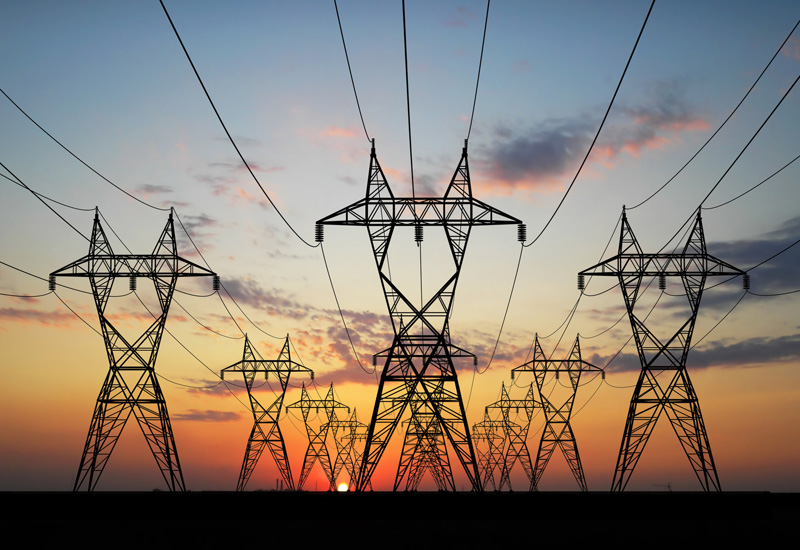
Almost all of Nigeria’s 11 electricity distribution companies reported huge losses in seven straight years, a distressing scorecard that highlights the struggles of a sector that has failed to meet the power needs of Nigerians nearly a decade after the government handed control of the firms to private investors.
Ten of the 11 companies, also known as DisCos, reported about N2 trillion in losses between 2013 and 2019. The firms made no profits in any of the years in between, according to a PREMIUM TIMES analysis of their annual reports.
Port Harcourt Electricity Distribution Company, the only company not on the list, did not file its report, prompting sanctions from the regulator, the Nigeria Electricity Regulatory Commission.
Ikeja Electricity Distribution Company recorded the highest total loss of N472.2 billion, while Benin Electricity Distribution Company recorded N81 billion as the least.
One energy sector consultant blamed the losses on “low tariffs”, and another said there was the “issue of sub-optimal management”.
Contents
Electricity challenge
Nigeria, Africa’s largest economy, has one of the world’s worst power sector, producing an average of 5,000 megawatts of electricity for a population of about 200 million for decades. Some 80 million people do not have access to the national grid and power shortages cost the country $29 billion, according to the World Bank.
To compare, South Africa, the continent’s second biggest economy, generates about 55,000 megawatts for a population of about 58 million.
Successive governments have tried but failed to reform Nigeria’s energy sector. The main problems are decaying infrastructure, low investment, debts, and poor management. There are also “operational inefficiencies”, PricewaterhouseCoopers (PwC) said in a 2020 report.
In 2013, the government unbundled the then state-run Power Holding Company of Nigeria (PHCN) into11 DisCos run by private investors. There are also generation companies (GenCos) and the Transmission Company of Nigeria, the only arm run by the government.
The problems have continued nonetheless with all three arms – generation, transmission, and distribution – reporting difficulties. In June 2020, DisCos blamed the federal government’s high import duty on electricity meters for the difficulty in providing the equipment to their customers, and ultimately for low revenue.
The DisCos also accuse the federal government of reneging on pre-privatization agreements, making it difficult for them to efficiently deliver their services.
Perpetual losses
Data reviewed by PREMIUM TIMES show that Ikeja Electricity Distribution Company, which lost N472.2 billion, recorded its highest loss of N147.6 billion in 2019.
Abuja Electricity Distribution Company lost N389.9 billion between 2013 and 2019, with its biggest loss N124 billion also in 2019.
In its report, the AEDC wrote: “The company has historically incurred losses due to the existing electricity pricing regime which has not allowed for full recovery of costs through price increase.”
Kaduna Electricity Distribution Company lost N246.8 billion in successive years and had its biggest loss N82.2 billion in 2019.
Ibadan Electricity Distribution Company recorded N218.3 billion as loss with the highest loss of N11.9 billion in 2019.
Kano Electricity Distribution Company lost N2020.7 billion, while Yola Electricity Distribution Company lost N81.6 billion. Both companies recorded their biggest losses in 2019.
Available record show that between 2013 and 2018, Enugu Electricity Distribution Company lost N157 billion loss with the highest N57.1 billion in 2018.
Eko Electricity Distribution Company recorded N151 billion loss with 2018 alone recording a loss of N58.8 billion.
Jos Electricity Distribution Company recorded N103.1 billion with 2018 recording the highest N42.4 billion
Benin Electricity Distribution Company recorded N81 billion, it recorded N43 billion in 2018 alone.
Low tariffs and sub-optimal management
An energy sector consultant and analyst, Dan Kunle, said the it will take years for Nigeria to sufficiently deal with the problem of power to make the sector viable.
“We have not invested enough money for us to have neared adequate power production, transmission, and distribution, the infrastructure for the three are still at infancy level. They are not yet in any way near maturity at all,” he said.
“Because of this lack of investment in multiple (hydro, gas, solar and all) generating capacity, we as a nation don’t have sufficient money to build a robust high tension transmission infrastructure. If the infrastructure to distribute the power is power, you get poor results, these are the fundamental issues.
“This has hindered additional investment from flowing into the sector. Meanwhile, the same government that will not give you the green light to run also has no money to inject into the sector. The little money the government has when injected does not show critical mass impact, it is near sufficient.”
He said interventions so far by the Central Bank of Nigeria, estimated at N1.3 trillion in seven years, is “like a drop in the Atlantic Ocean”.
He also said the respect for the rule of law will build the confidence of investors in the sector which will bring about the expansion and incremental investment will start trickling in.
The CEO of New Hampshire Capital Ltd, Odion Omonfoman, said huge funding challenge weighs down the power sector that threatens its viability.
He said the challenge is partly due to the non-implementation of cost-reflective tariffs by NERC, high technical and commercial losses exacerbated by energy theft, and consumers’ apathy to payments because of unfair estimated billing practices by DisCos, and poor metering implementation by DisCos.
“There is also the issue of sub-optimal management arising from a lack of proper corporate governance structures in some DisCos,” he said.
“As long as the existing DisCos have an unwritten monopoly to supply electricity to Nigerians without any competition from other market providers, it is doubtful if the power sector will ever be efficient, no matter how much the CBN injects in the sector.”
He suggested that the NERC urgently license other players to distribute and sell electricity to Nigerians.
“In the alternative, state governments should make laws that will allow for state governments to license and regulate private investors to generate and distribute electricity to their citizens as well,” he said.


















































